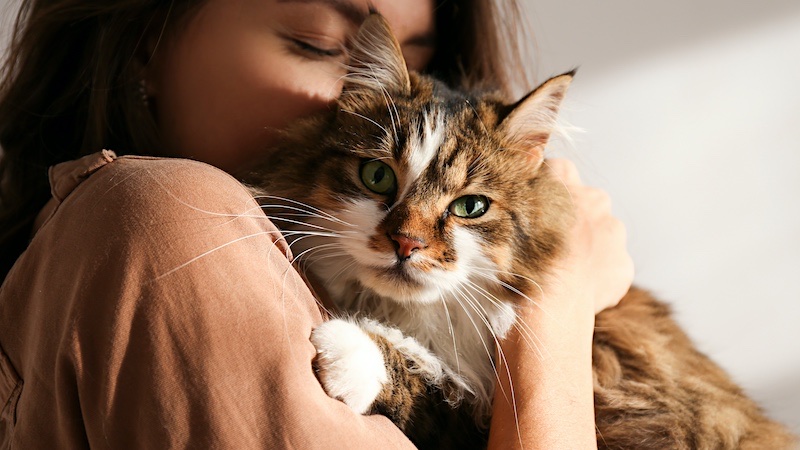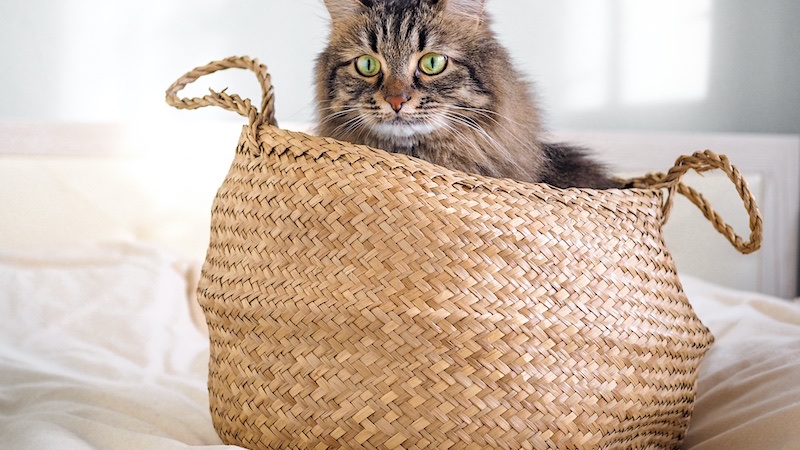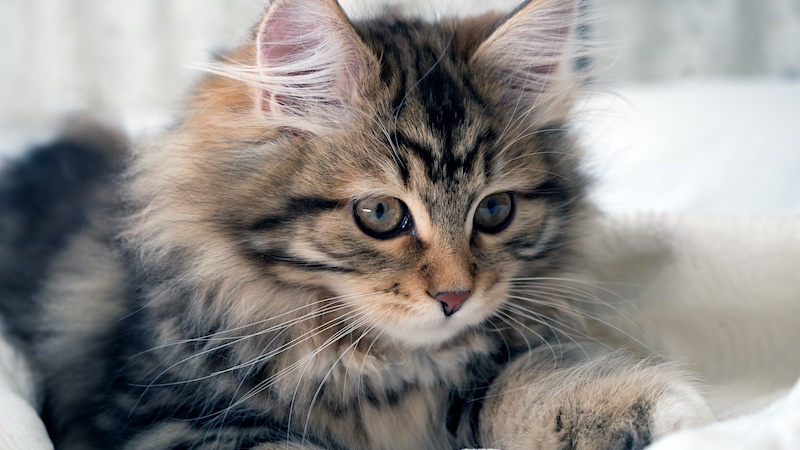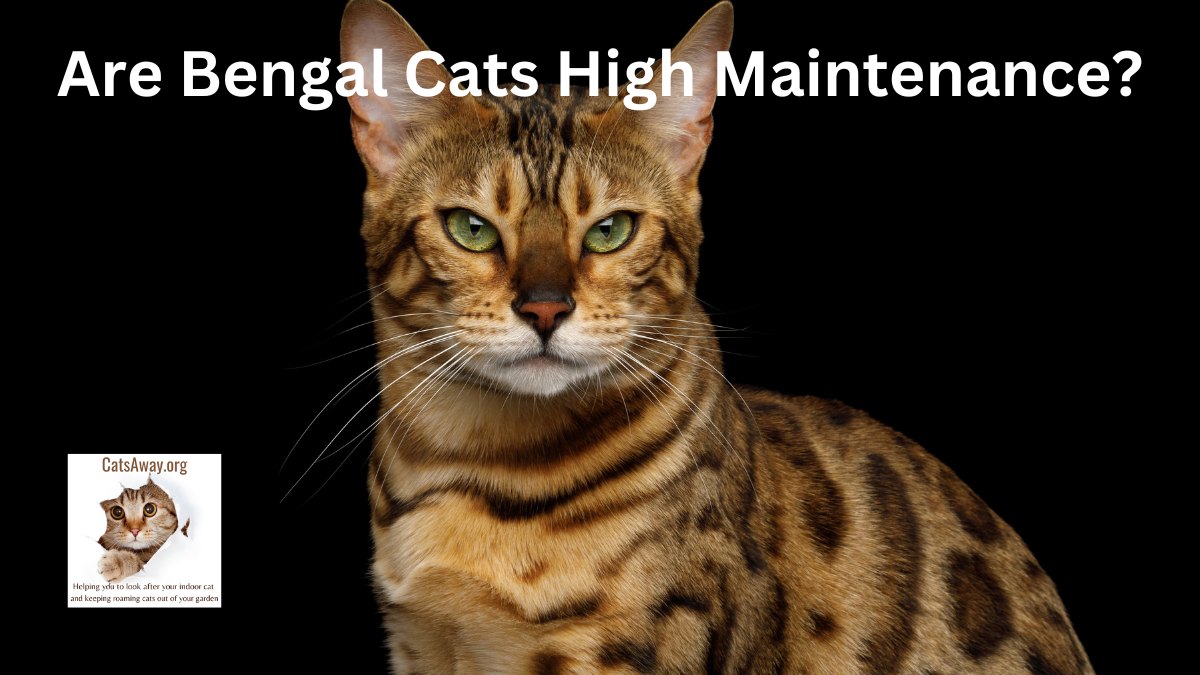Are you looking for an indoor cat that won’t trigger your allergies? The hypoallergenic Siberian cat may be the perfect choice. This distinctive type of feline is renowned for emitting less allergens compared to other cats, thus making it a great option for those with allergies. Learn more about this unique breed and how to care for them as well as tips on keeping neighbourhood cats out of your garden.
What is a Hypoallergenic Siberian Cat?

The hypoallergenic Siberian cat is a breed of domestic cats that are believed to produce fewer allergens than other breeds making this type of cat beneficial to those who have severe cat allergies.
Siberians have been a part of the feline family since the late 19th century, originating in Russia and Ukraine. They are a medium-sized cat with a thick coat that can come in many colors, including white, black, gray, blue and red. Siberians have strong muscles and long legs which give them their athletic appearance.
Characteristics of the Breed:
Hypoallergenic Siberian cats are known for their intelligence and loyalty to their owners as well as being easy going around other animals and children. Their eyes, with almond-shaped pupils, exude curiosity. Their coats are typically soft but dense due to having three layers; guard hairs (outer layer), undercoat (middle layer) and down hair (inner layer).
These cats also tend to be more vocal than other breeds due to their ancestry of hunting small prey in the wilds of Siberia.
The source of this breed can be traced back to ages past when it was initially bred by nomads inhabiting the Ural Mountains in Siberia during wintertime, when food sources were scarce. Their ancestors, domesticated forest cats called “Pallas Cats” or “Manul Cats,” hunted mice, rats, and birds on farms and villages surrounding these mountains for sustenance and survival.
Over time, these original feral Pallas Cat bloodlines interbred with native Russian Blue Cats to create what is now known as Hypoallergenic Siberian Cats – a unique hybrid between two distinct feline species.
Allergy-Friendly Qualities:
Hypoallergenic Siberians produce exceptionally low allergen levels of Fel D1 protein compared to other breeds because they possess less glands that secrete it into their fur/skin oils – making them much more suitable companions for allergy sufferers. In addition, unlike most short haired varieties, these felines do not require frequent grooming sessions which helps reduce airborne allergen particles even further.
Siberian cats are ideal for allergy sufferers as they practically do not produce the protein Fel D1, which has been proven to cause over 80 % of animal allergies.
Source
The Siberian cat has recently gained notoriety for its one-of-a-kind qualities and hypoallergenic traits, becoming a favorite among owners everywhere who have respiratory ailments that may be exacerbated by other types of cats.
Recap: The hypoallergenic Siberian cat is an ideal pet for those with allergies or asthma, possessing less glands that secrete Fel D1 protein into their fur and skin oils. With its intelligence and loyalty to owners as well as being easy going around other animals and children, this breed has become increasingly popular in recent years among pet owners worldwide.
Caring for a Hypoallergenic Siberian Cat
Grooming Requirements:
Hypoallergenic Siberian cats have a thick, long coat that requires regular grooming to prevent matting and keep the cat’s fur healthy. It is recommended to brush the cat at least once a week with a slicker brush or comb. Bathing should be done sparingly, no more than a few times every several months. Regular nail trims are also important for keeping your cat’s nails in good condition.
Diet and Nutrition Needs:
A balanced diet of high-quality wet food and dry kibble is essential for hypoallergenic Siberian cats. They should be fed twice daily with plenty of fresh water available at all times. For optimal health, supplementing their diet with omega fatty acids, probiotics, vitamins and minerals is recommended.
Exercise and Activity Levels:
Hypoallergenic Siberian cats are active animals that require plenty of exercise to stay healthy and happy. Playing interactive games such as fetch or chasing laser pointers can help keep them entertained while providing much-needed physical activity on top of their regular cat playtime outside in the garden if you have a cat proof fence or large cat enclosure to keep them safe.
Regular veterinary check-ups are essential for hypoallergenic Siberians to remain healthy, as with any other breed of cat. Even indoor cats need vaccinations to be kept up-to-date. This will help protect against common feline diseases like rabies and distemper which can cause serious illness if left untreated.
Furthermore, regular use of parasite-control products such as flea collars is needed to protect your pet from potential infestations by ticks and fleas.
Caring for a Siberian cat can be a rewarding experience that is relatively low maintenance. With the right knowledge and preparation, owning this breed of cat can provide many benefits to its owners.
Recap: Hypoallergenic Siberian cats require regular grooming, a balanced diet and plenty of exercise to stay healthy. To ensure their well-being, regular vaccinations and preventive measures against parasites should be taken. To ensure optimal health, these cats need the right kind of TLC.
Benefits of Owning a Hypoallergenic Siberian Cat

Owning a Siberian cat has numerous benefits for pet owners, including low maintenance pet care, sociable nature and affectionate disposition, intelligence and trainability, and long lifespan and good health record.
Low Maintenance Pet Care:
Siberian cats are easy to groom due to their short coat which requires minimal brushing. They also have few dietary requirements as they can thrive on dry food alone with no need for supplements or special diets. Siberian cats are typically quite healthy, meaning vet visits don’t need to be too frequent.
Sociable Nature and Affectionate Disposition:
These cats are known for being social creatures who enjoy spending time with people in their household. They will often seek out attention from family members by following them around the house or curling up in laps during movie night. They are also very loving animals that bond closely with their owners over time, making them ideal companions for those looking for an affectionate pet.
Intelligence and Trainability:
Siberians are highly intelligent cats that can easily learn basic commands such as “sit” or “come” if given enough patience and consistency during training sessions. This makes them great candidates for teaching tricks like playing fetch or walking on a leash – activities that many other breeds of cat may struggle with due to lack of interest or intelligence levels required to understand instructions properly.
For those seeking a loving, easy-care pet, the hypoallergenic Siberian cat is an ideal choice. Subsequently, let us contemplate several tactics to prevent cats from entering your garden.
Recap: Hypoallergenic Siberian cats are the perfect pet for those looking for low maintenance care, a sociable and affectionate companion, intelligence to train tricks or activities, and long lasting health. They provide all these benefits with minimal effort due to their easy-going nature.
FAQ
Can I have a Siberian cat if I’m allergic?
Not necessarily as it depends if you have severe cat allergies. Allergies vary from person to person and there is no guarantee that the hypoallergenic qualities of the Siberian breed will be enough for your particular allergies.
There are medications available and you may be able to get rid of your cat allergies naturally.
If you suffer from allergies it is prudent to try and spend time with any pet or seek advice from a specialist in allergies prior to choosing any pet.
What is special about Siberian cats?
Siberian cats are a long-haired breed of domestic cat that originated in Russia. They are known for their thick, plush coats and gentle nature. Siberians have an affinity for water and can often be found playing with it or taking baths.
Their friendly personalities make them great companions for families, as well as good hunters due to their natural agility and strength. These cats also tend to live longer than other breeds – up to 15 years or more if kept as an indoor cat. With proper care, Siberian cats can bring joy into any home.
Are Siberian cats worth the money?
Siberian cats are a type of fluffy, hypoallergenic furball with long hair. While they may cost more than other breeds, their intelligence and personality traits make them worth the money for those looking for an intelligent companion.
They require weekly grooming to keep their coats healthy and tangle free, but many owners find this rewarding due to the bond it creates with their pet.
Siberian cats also tend to be very social animals that thrive on human interaction, making them ideal companions for families or individuals who can give them plenty of attention.
Do siberian cats shed?
Yes, Siberian cats do shed. According to my sources, Siberian cats shed twice a year, typically in the spring and fall, when they lose their winter and summer coats, respectively. However, they shed less than many other breeds with similar coat types and their coat tends to resist matting, so they only require occasional brushing.
What is the most friendly hypoallergenic cat?
The most hypoallergenic cat is the Siberian, a breed that originated in Russia. This breed produces less of the Fel d 1 protein, which causes allergies in humans. Siberians have a thick coat and require regular grooming to keep it healthy and free from shedding allergens.
They are also very friendly cats with an even temperament and enjoy spending time with their owners playing games or cuddling up for naps. Siberians make a fantastic pick for those seeking an allergen-free feline plus the extra perk of having a great companion.
What is an Hypoallergenic cat?
Have you ever heard someone say that their cat is hypoallergenic? But what does that actually mean? In simple terms, it means that the breed of cat produces fewer allergens than other breeds.
This can be particularly important for those who are allergic to cats but still want to experience the joy of having a feline companion.
So, how do you know which breeds are considered hypoallergenic? Some popular ones include the Siberian, Sphinx, Devon Rex, and Balinese. These cats have less fur or produce less dander (the tiny flakes of skin that cause allergies) than other breeds. However, it’s important to remember that no cat is completely allergen-free and some people may still experience allergic reactions even with a hypoallergenic breed.
Conclusion

In conclusion, owning a hypoallergenic Siberian cat can be an incredibly rewarding experience for allergy sufferers. With its origins in the cold climates of Siberia, this breed is known to have low levels of dander and fur that make it ideal for people with allergies.
Not only do they make great indoor cats but also require minimal grooming and are relatively easy to look after.





